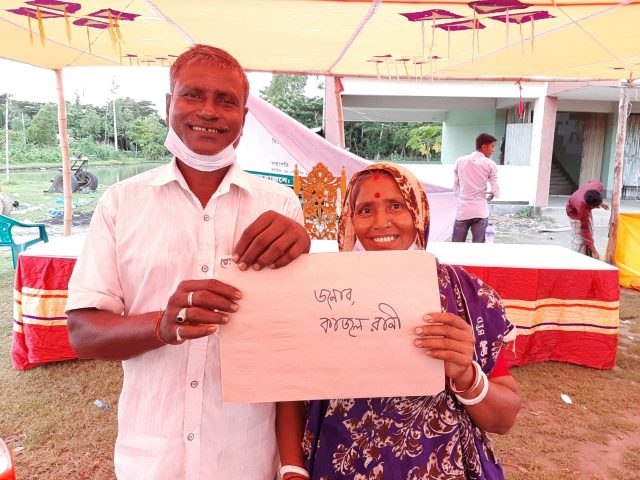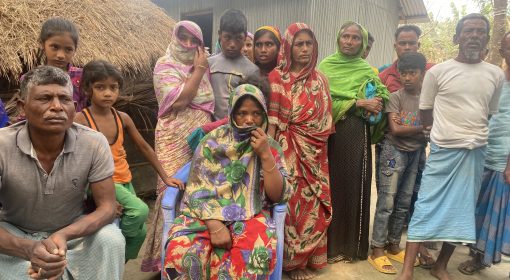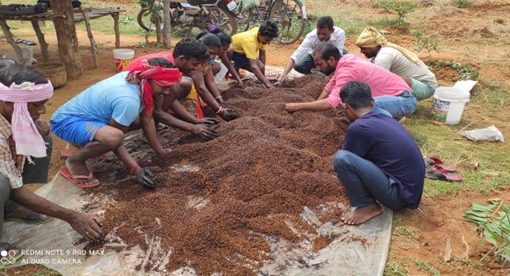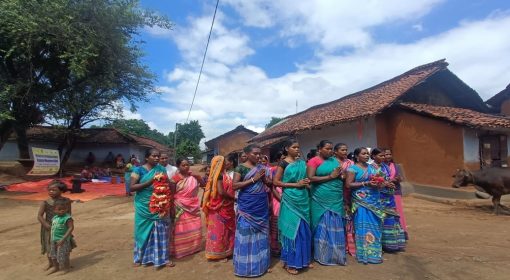By Jannatul Raim Rushni and Frank van Steenbergen
Entitlement is a big thing. It is contractual but also in relations and in the mind.
The development of the char lands – the mudflats and sandflats – in the highly dynamic estuary of the Meghna in Bangladesh is remarkable. The river is braiding and shifting – eroding riverbanks, taking land in the process. At the same new land emerges in the estuary.
The newly accreted land becomes the property of government (khas land) and is transferred to Forest Department to plant trees that help to stabilize that land. After 20 years, the land is considered as fit for settlement. However, while land is accreting, it is also eroding in other places and people lose their lands. Without any place to go many of them tried to rebuild their homes in newly emerged chars, often before 20 years have expired. They occupied the land illegally and, in some cases, had to ‘buy’ it from local power brokers. There was previously hardly any administrative action of government in the new chars. Land grabbers dominated the area. These so called ‘bahini’ (armed gangs) distributed the land to the landless people taking rent from them. Law and order situation in char areas was very bad. The ‘bahini’ took cattle from char dwellers, abducted women and raped them, kidnapped people and extorted money.

Things changed for better after 2000. This story of allocating land to new owners is remarkable and worth sharing. With the arrival of the Char Development and Settlement Project (CDSP) the land process was organized. The new land, formally belonging to the Ministry of Land, was now allocated directly to the settlers under a 99-year lease. Following the Land Distribution Policy (1997) of the Ministry of Land, each family was given 1.5 acre (0.6 ha). According to the rules the land was given to both women and men alike. What CDSP did was to put the wife as the first owner, the husband as second.
The land settlement created an enormous ripple in the pioneer society. First the settlers were no longer in the clutches of the land grabbers. They could build up their new lives and communities as equals, all with an entitlement. The development of the reclaimed char land was done in a participatory manner with a large role for the collective Water Management Groups that were established. Practical democracy became the norm. The Water Management Groups are still active today. Apart from land and water issues, they are also asked to mediate with family issues and conflicts between neighbors. Such is their status.
Given land titles to wives and husbands both, with the women registered as first owner, created an enormous ripple too. It reduced child marriages as no such couples were given land. It discouraged polygamy, as in that case the man would have to share the land equally with several wives. It also caused illegal divorce and the practice of abandoning one’s wife, as the man stood to lose the land in this case. Women were accepted as important person in the family – and as such standing a lesser risk of domestic violence, which unfortunately is widespread in Bangladesh.
Equally important it ‘entitled’ women, making them a respected member of the community, with a fair share in hope and aspiration. At practical level the land titles were also used to get bank loans, an opportunity not always available to women.
In twenty years the CDSP has facilitated land titles for almost 34,000 couples, covering 44,500 acres with the process still ongoing in newly developed land, such as Oro (Urir) Char.
For further reading: New Land, New Life: a success story of new land settlement in Bangladesh (Andrew Jenkins, Natasha Hyder, eds)



